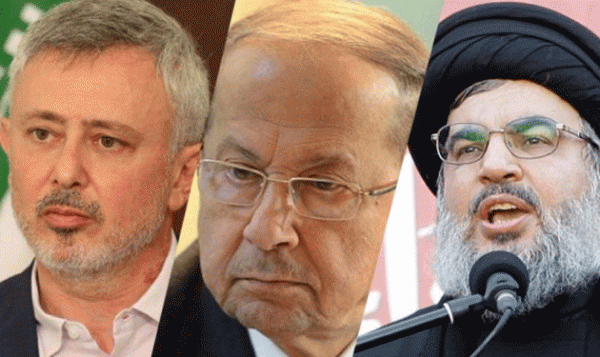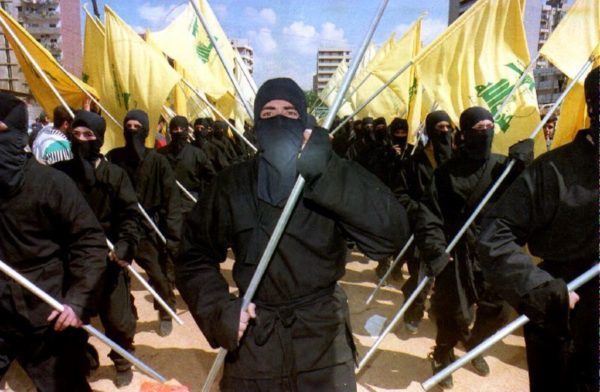France will host an international meeting on Monday on how to end months of political deadlock in cash-strapped Lebanon, the foreign ministry said.
The Paris gathering is to be attended by representatives from France, the United States, Saudi Arabia, Qatar and Egypt, foreign ministry spokeswoman Anne-Claire Legendre said Thursday.
Lebanon is being run by a caretaker government and is also without a president as lawmakers have repeatedly failed to elect a successor to Michel Aoun, whose mandate expired at the end of October.
The political impasse has hampered efforts to lift the Mediterranean country out of its worst-ever financial crisis.
The currency has lost more than 97 percent of its market value to the dollar since 2019, and more than 85 percent of the population lives in poverty, according to the United Nations.
French Foreign Minister Catherine Colonna, “has expressed her very serious concern on Lebanon’s political deadlock,” Legendre said. Colonna was visiting Saudi Arabia on Thursday.
France and regional partners have been discussing means “to encourage the Lebanese political class to assume its responsibilities and foster a way out of the crisis,” Legendre added.
“This approach will be the subject of a follow-up meeting with the French, US, Saudi, Qatari and Egyptian administrations on Monday to continue coordinating with our partners and find ways to move forward.”
It was not immediately clear if any Lebanese representatives had been invited.
No meeting at ministerial level has been planned for now, Legendre said.
French President Emmanuel Macron in December urged Lebanon to “change its leadership” following months of deadlock that have impeded reforms vital to unlocking billions of dollars in foreign aid.
French diplomat : “IMF is only solution” for Lebanon
A visiting French diplomat charged with coordinating international support for Lebanon, in order for it to receive International Monetary Fund aid, blasted the slow pace of reforms in the crisis-hit country.
It’s really slow,” Pierre Duquesne told journalists in the Lebanese capital, at the same time highlighting “a few minor adjustments that go in the right direction.”
Last April the IMF last April announced an agreement in principle with Beirut for $3 billion in aid spread over four years, but conditional on implementing crucial reforms.
Among the reforms demanded by the IMF is parliament’s approval of the 2022 budget, which Duquesne said came “late.”
Lebanon has been effectively leaderless for months, without a president and ruled by a weak caretaker cabinet.
The IMF is also demanding reform of banking secrecy laws and a restructuring of the banking sector as a whole, as well as a law on capital controls.
“There is no other solution than the IMF to provide capital, credibility and confidence… and to reduce inequality,” Duquesne said.
Duquesne is in Beirut to provide French support for the recovery of Lebanon’s energy sector, a mission that has already taken him to Egypt and Jordan.
“The two countries have expressed extreme goodwill and said they are technically ready to supply gas and electricity to Lebanon,” which is almost completely without power, the diplomat said.
Duquesne said he would visit Washington over the next 10 days to discuss “exemptions” for Egyptian gas and Jordanian electricity supplied to Lebanon via Syria, which is subject to stringent U.S. sanctions.
There, he will also meet officials from the World Bank, which is expected to finance energy deliveries.
Last September, the IMF also criticized the Lebanese authorities, saying progress in implementing reforms remained “very slow.”
Hezbollah behind the impasse

The head of Hezbollah’s parliamentary bloc, MP Mohammed Raad, warned on Saturday that his party’s “enemies” are “trying to turn the presidential juncture in Lebanon into a platform for taking hold of a president who would implement their policies and continue their scheme of tightening the noose on the Resistance.”
“We are not the ones paralyzing the country. It is rather being paralyzed by those who are putting their hand on its money, banks, policies, siege and sanctions, preventing that it be supplied with electricity,” Raad claimed
Hezbollah lost its majority in the last election and is experiencing problems in coming up with the votes needed to elect its candidate Marada Movement chief Suleiman Franjieh , who is closely associated with Syrian dictator Bashar al Assad. , as president.
According to observers Hezbollah is repeating the same Scenario as in 2016 when it insisted for more than two years of presidential vacuum on the election of its ally FPM founder Michel Aoun as the president .
The heavily armed Iran backed Hezbollah is the only militia that was allowed by Syrian occupational forces to keep its arms at the end of Lebanon’s civil war in 1990
Many see Franjieh as Aoun number 2. Aoun was proclaimed by many Lebanese leaders as Lebanon’s worst president ever .
Lebanon is witnessing an unprecedented economic collapse that the World Bank has ranked among the worst in the world since the mid-19th century, accompanied by the disintegration of the main pillars of the prevailing political-economic model in the country since the end of the civil war (1975-90). It’s mainly reflected in the collapse of basic public services.
News Agencies


Leave a Reply
You must be logged in to post a comment.